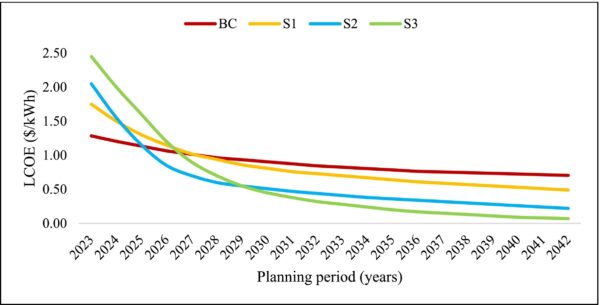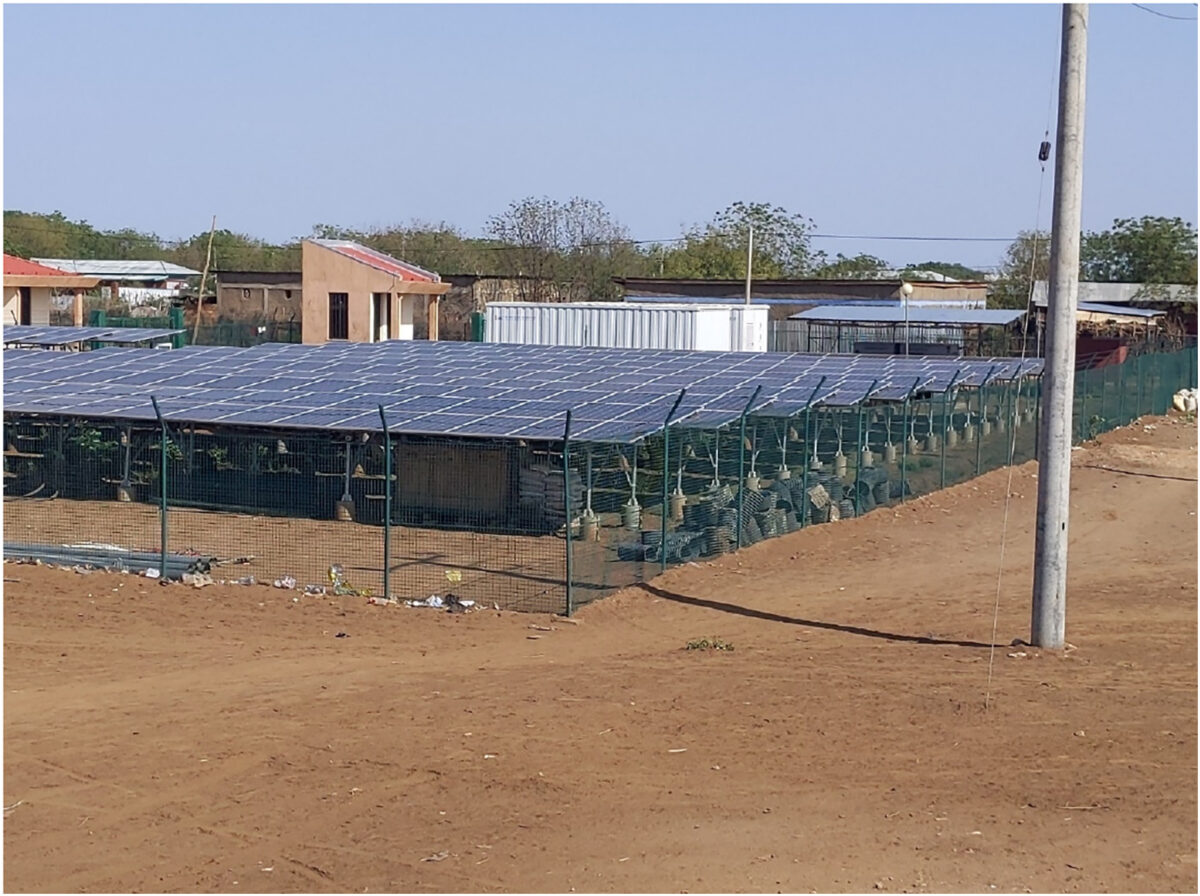Scientists from Sweden's Chalmers University of Technology sought to define optimal capacity expansion planning for off-grid PV mini-grids in rural Ethiopia and found that there may be serious issues in achieving cost-effectiveness and reliability at the same time.
“A significant number of the mini-grids deployed in off-grid areas of developing countries are experiencing serious reliability issues,” the academic explained in the paper “Long-term optimal capacity expansion planning for an operating off-grid PV mini-grid in rural Africa under different demand evolution scenarios,” which was recently published in Energy for Sustainable Development.
“At the root of the capacity shortage problem lies inaccurate initial demand assessments, and subsequent under-sizing of the mini-grids. Many mini-grids are designed using static and artificial load profiles, assuming that the present consumption levels of customers reflect their future energy needs.”
The researchers investigated the case study of a mini-grid operating in a small town called Omorate, located in southern Ethiopia. Costumers of this mini-grid in 2022 had a demand of 638.8 MWh, of which 250 MWh, or 40%, was unmet.
This system has a capacity of 375 kW and consists of a PV system, converters, maximum power point trackers (MPPTs), a storage system using five LiFePO4 battery packs with a total nominal storage capacity of 600 kWh, a diesel generator with 100 kW power, a distribution board and loads.
Using the HOMER Pro optimization software, they assumed three expansion scenarios for the mini-grid. In all scenarios, a maximum of 10% yearly shortage was allowed.
In the first scenario, the system expansion was conceived to meet the current demands – estimated to be on average 1750 kWh/day and 639 MWh/year. The second scenario assumed a 5 % annual demand growth rate, resulting in a daily and annual demand of 3,039 kWh and 1,109 MWh, respectively. The third scenario assumed a 15% annual demand growth rate for business and productive users only, summing up to daily and annual demand of 4,075 kWh and 1,487 MWh, respectively.
Popular content
Through their analysis, the scientists found the third scenario had the lowest levelized cost of electricity (LCOE), of $0.404/kWh. The first scenario resulted in an LCOE of $0.887/kWh, and the second was $0.592/kWh. However, the average electricity price currently paid by households in the area was $0.030/kWh, meaning that the revenues generated from power sales may not be able to recover the cost of the expansion.

Image: Chalmers University of Technology, Energy for Sustainable Development, Creative Commons License CC BY 4.0
“The findings highlight two important points,” the paper says. “First, the financial viability of mini-grid capacity expansion heavily depends on the electricity prices. Second, ensuring the financial viability of off-grid mini-grids in Ethiopia requires designing the systems to support productive use of electricity and introducing appropriate incentive mechanisms and tariff restructuring.”
The researchers explained in the paper that the 15% expanding scenario will be the most expensive to complete, with a total cost of $7.4 million. The 5% expansion will cost $5.9 million, and the meet-the-demand scenario will cost $4.2 million.
Their findings also show that in all scenarios, the battery expansion accounts for most of the total capacity expansion costs, accounting for 52%, 62% and 73%, respectively.
“It is always recommended to use larger capacity batteries to meet a given electrical load. However, a larger battery also increases system costs, the researchers said. “Conversely, expanding the mini-grid solely based on cost minimization may not produce the desired reliability. This highlights the significant non-linear trade-off between minimizing capacity expansion costs and maximizing reliability levels.”
“Although not all, many of the findings of the study have a high degree of generalizability to the context in tropical east Africa and other developing regions at large,” the paper concluded.
This content is protected by copyright and may not be reused. If you want to cooperate with us and would like to reuse some of our content, please contact: editors@pv-magazine.com.


1 comment
By submitting this form you agree to pv magazine using your data for the purposes of publishing your comment.
Your personal data will only be disclosed or otherwise transmitted to third parties for the purposes of spam filtering or if this is necessary for technical maintenance of the website. Any other transfer to third parties will not take place unless this is justified on the basis of applicable data protection regulations or if pv magazine is legally obliged to do so.
You may revoke this consent at any time with effect for the future, in which case your personal data will be deleted immediately. Otherwise, your data will be deleted if pv magazine has processed your request or the purpose of data storage is fulfilled.
Further information on data privacy can be found in our Data Protection Policy.